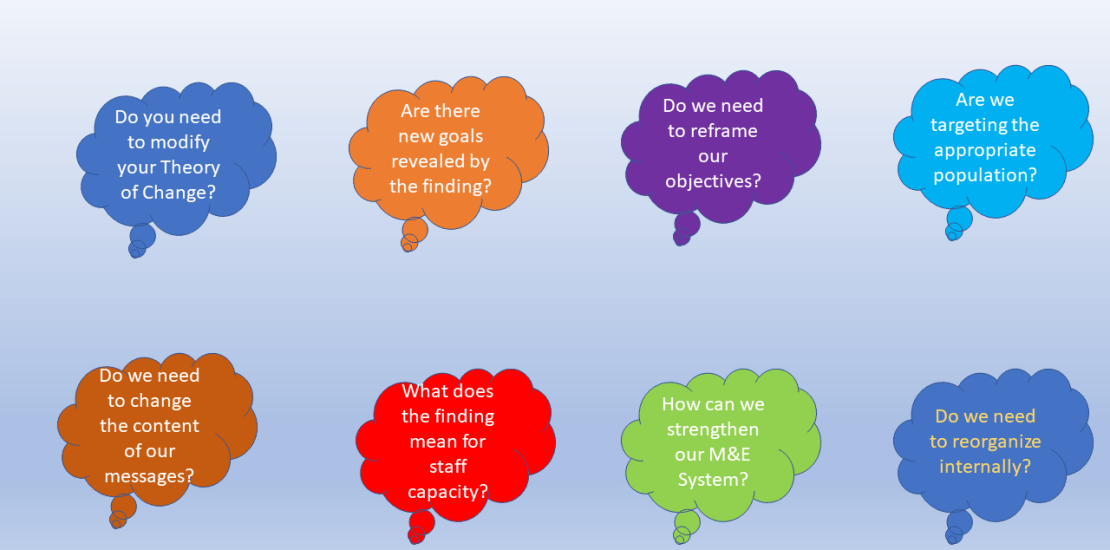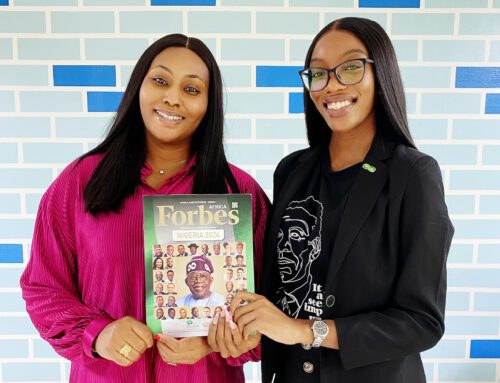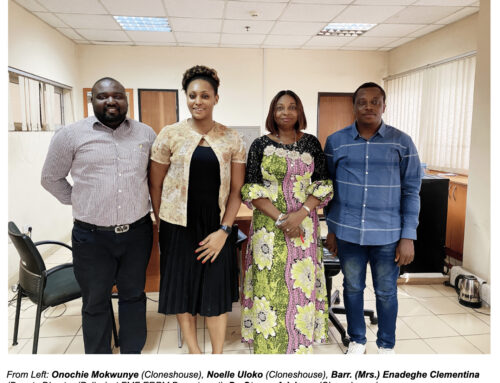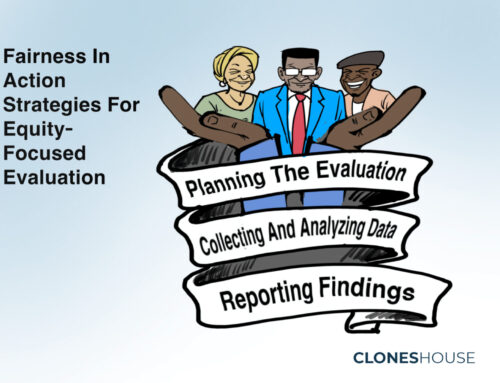The most important role of your findings is to improve your program or develop new programs. They can tell you if your program is functioning at its best or if you are having the results you wanted. An approach to taking a deeper dive into improving your program is by organizing reflection workshops. A thorough analysis of your findings will lead you back to your needs assessment through a process of organizational self-reflection and program improvement. Based on past reflection workshops with diverse groups, this resource provides strategies we have used to conduct reflection workshops.
What is a Reflection Workshop
A Reflection Workshop allows you to reflect on the approaches of your programs and ask what you have learned about each of them concerning the program. Examples of what we reflect on with some of our clients or clients beneficiaries in the course of the program include:
- protecting and fulfilling people’s rights and obstacles that need to be overcome
- ways to meet people’s health care needs on their terms and from a holistic perspective
- what strategies worked to modify anti-corruption agencies power dynamics and what obstacles will you still have to overcome
- the challenges of trying to promote a healthy peace and conflict approach with the age groups you were working with and how to overcome them
- the importance of participation of women and other community groups in the content and quality of the financial services provided
- effective strategies for working with marginalized and/or vulnerable groups? How did this work influence the other work done by your social enterprise and the other groups you work with?
Delivery of a Reflection Workshop
When should you conduct a Reflection Workshop?
This will depend on the duration of the program. Reflection workshops could be designed quarterly or annually. Of the 26 reflection workshops we have facilitated in the last 7 years, 20 of them happened quarterly, while others happened annually. They are 2-3 hours long workshops. We usually start at 10:00hrs and end at the 12th hour. Reflection workshops can be held during the activity phases of a program, at the end of activities designed for a program, and before the start of another round of a just-concluded program. See the table below for when you can hold reflection workshops in a program cycle.
How many people need to be in a Reflection Workshop?
Could be as small as one to two individuals, and as large as 25. What’s most important is to make sure you have program decision-makers available at your reflection workshop. As part of the pre-workshop process, we usually request that we have clients or beneficiaries decision-makers in attendance. Why do you need decision-makers? First, it allows them to swing into action (See table below on possible actions) immediately. Second, they do not need a third party person to tell them why they need to take those actions. Beside decision makers in the organization, primary attendees should be those that implemented the program. On a few occasions, we have had the rare privilege of having few beneficiaries of a program at reflection workshops. Trust me, the beneficiaries’ input were very useful for the program implementers, especially in the design of new strategies.
A reflection workshop with Youth Fellows of the Friedrich-Ebert-Stiftung Open Minds – Young Voices Program
What is the mode of delivering a Reflection Workshop?
We have found in-person reflection workshops useful in the past, as we can observe motives, intentions, body languages of participants, and quickly use that to adapt methods of delivering the question sessions (See table below for possible questions). Alternatively, we resort to online workshops that can be facilitated as one-one or in groups using online call applications such as Skype, Zoom, and online whiteboard tools such as Mural, Miro and Google Jam Board
What methods can be used to deliver a Reflection Workshop?
We have found participatory methods very useful for delivering on the objectives of improving a program or policy. At our reflection workshops, we provide opportunities and props for participants to make their observations about certain themes in the programs known. Most times, the themes focus on how findings are creating new perspectives on a clients or beneficiaries’ earlier understanding of the social problem; their assumptions in creating a theory of change; goals statements; program objectives; inputs and activities designed to achieve outputs and outcomes. At the same time, we ask participants of reflection workshops what insight they are getting on data collection methods for M&E, and organizational level learning. Lastly, we work with participants on thinking through how they think new findings can be used to support partners’ work.
A group of team members from the Nigerian Incentive-Based Risk Sharing System for Agricultural Lending reflecting on their activities
The table below is a guide on questions that might be relevant for participants’ reflection considering the program cycle stage. The questions are adapted to the context we are working on and provided to participants for a response. When we have a group of more than ten, we provide sticky notes for participants to use to respond. Their response is then sorted and aggregated, and actions agreed on – sometimes through voting.
| Program Cycle | Questions | Actions |
| Understanding the social problem |
|
Discuss these new understandings with program planning teams |
| Constructing a Causal Pathway |
|
Complete a new or modified Causal Pathway based on the M&E findings |
| Defining your goal(s) |
|
Choose a new goal
Modify the way your goal is written Reaffirm your goal |
| Defining your objectives |
|
Identify new outcomes or modify or reaffirm the ones you expect to achieve
Write objectives to fit each outcome |
| Activities |
|
Review all components of your activities:
|
| Inputs |
|
|
| M&E |
|
Plan M&E from the outset of all new and modified programs |
| Organization support |
|
|
| New donors |
|
Incorporate your findings into marketing tools for donors, donor reports and new proposals |




